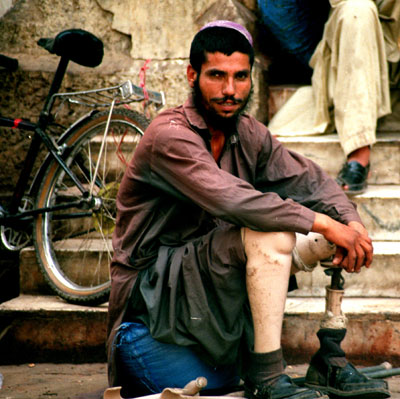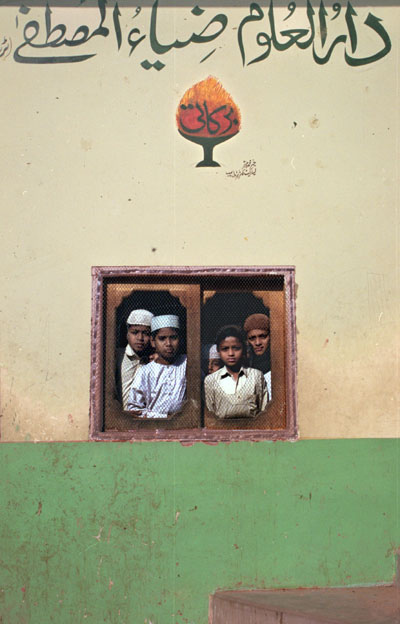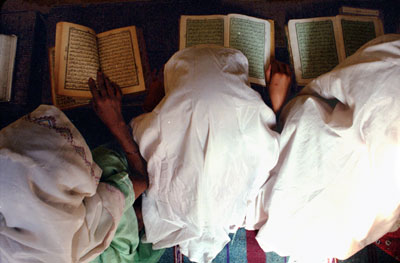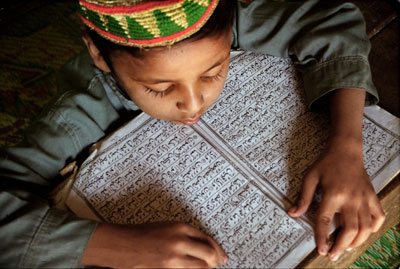Recording Pakistan: Adnan Malik '02 Shares His Impressions
As a born-and-raised Pakistani who has assimilated into American culture, the events of September 11 caused me to realize the importance of my role as a communicator between the two cultures in conflict. I returned to Pakistan last winter and took to the streets armed with a camera and an open mind, inspired to find my own version of the truth. My biggest lesson was a reassessment of my perspective on the Afghani people. I saw Afghani refugees as a large group of apolitical, poverty-stricken individuals who had suffered at the hands of the power-wielding few. Despite the same sentiments of fear, uncertainty, and vulnerability as the West, because of the events and repercussions of September 11, the refugees remain optimistic.


Over 20 years of war have resulted in the constant flow of refugees across the porous 2,400-kilometer border between Afghanistan and Pakistan. Although a handful of Afghanis have returned home recently, a large majority of the three million refugees still choose to live in Pakistan as second-class citizens rather than returning home to a politically unstable country. Top: Afghanistan has one of the largest numbers of amputees in the world, primarily due to land mine accidents. Bottom: Pakistan is a poor country ($400 income per capita) and houses over 140 million people. The refugees usually occupy the lowest tier of society and work as menial labor, such as trash collection. The more fortunate ones are involved in the clothing and transport business.

The Deeni Madaris (Islamic religious schools) occupy a central role in providing a free and safe haven for orphans and children of refugees. Historically, these schools have been integral to the Islamic faith, serving as charities, community centers, libraries, and schools. However, they lost government sponsorship during the British Colonial period, and the schools became vulnerable to foreign influence due to their dependence on private funding. During their contemporary history they have been funded by, and thus under the influence of, Americans, Saudi Arabians, and other Arab nations. After September 11, however, there has been increased international pressure to shut down these schools labeled as breeding grounds for terrorism. Yet, only a handful of the over 10,000 Madaris have had a direct connection with “terrorist” activities.


